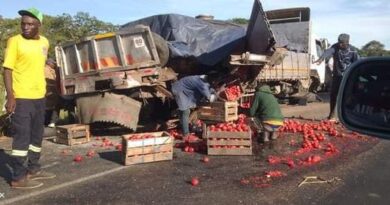Climate-Stressed Sinazongwe Grapples with Anthrax Outbreak
The Centre for Environment Justice (CEJ) expresses deep concern for the climate-stressed communities of Sinazongwe District, who are grappling with the aftermath of an anthrax outbreak. The outbreak has added to the challenges faced by these communities, already burdened by the impacts of climate change.
The Ministry of Livestock and Fisheries has responded to the crisis by dispatching 6000 dosages of anthrax vaccines. This effort aims to support the ongoing livestock vaccination initiative, targeting nearly 10,000 livestock, including cattle, goats, and sheep.
Unfortunately, the anthrax outbreak has taken a toll on the local livestock population, resulting in the death of at least 249 animals. Government authorities suspect that the actual mortality rate might surpass reported numbers due to underreporting by some individuals.
During a project monitoring exercise in Sinazongwe District, CEJ’s Head of Programmes, Haggai Nyambe, expressed concern over the adverse impact of the anthrax outbreak on groups empowered by CEJ.
These groups, supported through CEJ’s Alternative Livelihoods Support project funded by Bread for the World (Germany), have been engaging in alternative livelihoods such as livestock businesses.
Mr. Nyambe identified groups like Mwenzuma A, Mwenzuma B in Sinazeze, and Kanyama and Sikalonzo in Maamba as those affected by the disease outbreak. He revealed that CEJ has provided interest-free revolving funds to savings groups, known as Village Banks, to empower them in their ventures.
The CEJ representative highlighted the resilience of communities despite the challenges, emphasizing that the organization will continue supporting the affected groups.
The project aims to uplift the welfare of people in mining communities, particularly those facing challenges like relocations. Sinazongwe, in particular, struggles with the compounded effects of climate change and the recent anthrax outbreak.
“We are also monitoring groups that never received funding from CEJ but are being used as control groups. Some of the groups were trained by CEJ on village banking. We are happy that they have been resilient despite facing challenges among others, anthrax,” said Mr. Nyambe.
CEJ affirmed its commitment to the revolving fund exercise, intending to extend support to all 21 groups in Sinazongwe. These groups have ventured into diverse businesses, including goat, cattle, chicken, and vegetable farming. CEJ will continue monitoring their progress to ensure the success of these alternative livelihood initiatives.



